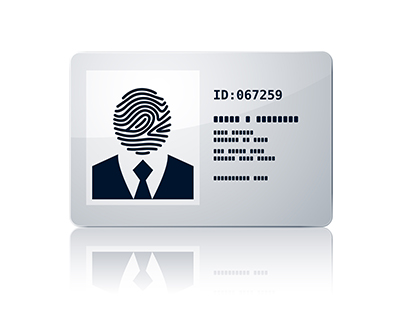Compliance checks have to be done, it’s the law, so why not automate them?
There are many service providers that offer a range of solutions varying from basic pay-as-you-go solutions, to all-encompassing platforms that run both UK and international compliance checks.
Whatever the agent’s budget, there will be a more than adequate and reliable electronic AML solution available.
Documents are no longer required for proof of identity, but for those agents who are still committed to collecting documents, technology can provide the mechanisms to validate passports, driving licences and proof of address.
Forged documents have an ever-increasing presence in our market and technology can detect fakes and forgeries which if left undetected, could result in a large claim that could liquidate a business.
So how does it all work?
All electronic verification systems have at their heart reference databases; the most common is the full Electoral Roll which holds the name and address of all adults eligible to vote.
But, in order to comply with regulation, for low risk, a minimum of two proofs of identity and one proof of address is needed. For a higher risk, a face-to-face client meeting and three proofs of identity are required and remote transaction where the agent doesn’t meet the client.
These additional checks can come from a variety of sources, the most reliable are credit reference databases. These are created by banks and financial institutions combining their customer databases to give a holistic single view of around 40 million credit-active customers.
Just accessing this one database source will typically give seven proofs of identity from six independent sources, more than enough to satisfy all the AML compliance considerations and much easier than trying to pull together these forms of identity manually.
This data is also the most recent available and very reliable as the data subjects have all passed AML verification checks performed on them by their individual bank, building society, credit card or loan company and it’s updated daily.
Other surrogate databases which could be used for reference purposes are utility billing databases and telephone databases. However, these tend to be infrequently updated and therefore they are less reliable.
Screening client names against the latest sanction and PEP watchlists is also an important aspect of AML compliance, this must be done at the point of engagement and repeated on a regular basis. This aspect of the regulations becomes difficult, cumbersome and costly to operate with a manual system based on copying documents.
A good electronic system will perform these checks automatically both at the point of engagement and thereafter daily, weekly or monthly, dependant on the business’ risk policy.
And the best bit is, this process costs very little and with some providers, there is no additional cost if the agent is already using the database for AML checks.
All too often agents collecting documents for proof of ID will have ineffective sanction and PEP processes in place leaving their business exposed and vulnerable.
Electronic verification systems also screen any new customers against databases of known deceased individuals, protecting against fraudulent activity driven by identity theft and active fraudsters.
Having established secure and reliable data sources the other key ingredient is a user-friendly system to process the AML checks.
Three important requirements are: 1) easy client input data - name and address with date of birth optional, 2) a simple result that is easy to understand and retain electronically (some systems host search data at no additional cost which is good for audits and regulatory visits) and 3) automatic sanction and PEP checks to keep the business compliant and protected.
Most electronic systems will satisfy all three requirements in under five seconds, some systems will also process business checks on the same platform in a similarly efficient manner completing AML compliance obligations in a couple of minutes.
Much of this technology operates across networks enabling mobiles and tablets to give ultimate mobility and compliance efficiency.
Most service providers can also retrospectively verify historic clients to remedy any intermittent compliance gaps, giving a complete compliance history for the past, present and future.
Those agents who are still using documents should try the electronic alternative; it will save a small fortune, it’s much more convenient for both the agent and its clients and there is a very good chance it could be made mandatory by the next Anti Money Laundering Directive in 2019.
*John Dobson is CEO of SmartSearch, a unique Anti Money Laundering verification platform








%20by%20Martin%20Cheek.jpg)





.png)


.png)



Join the conversation
Jump to latest comment and add your reply
AML is non-existent in UK property. Guy walks into a London agency and says he wants to buy £10 million flat for his Russian client. Transfer from Cyprus Bank. Agent just accepts it. And why? Because there has never been a prosecution of an estate agent for money laundering, despite hundreads of them (London ones, usually) being complicit in tens of billions of £££s of money laundering since the 1990s. What I really hope is that the Government will start going after them retrospectively. We need a couple of London agents in jail with 20 year sentences and it in Daily Telegraph. Then AND ONLY THEN will AML be taken seriously in London. Until that happens, why should anyone bother?
Please login to comment